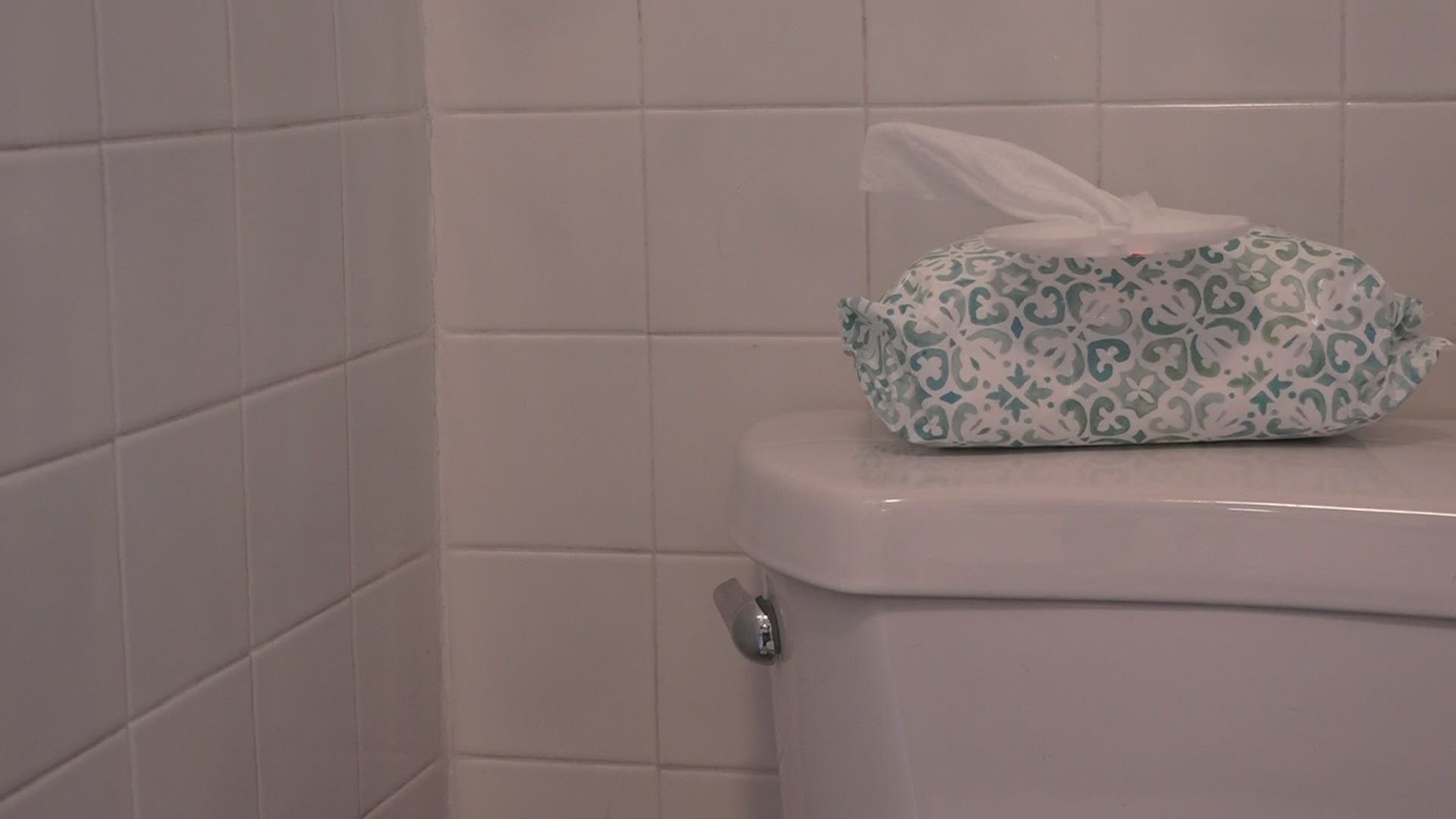GRAND RAPIDS, Michigan — During a time where sanitation is crucial and toilet paper is harder to come by, a West Michigan lawmaker is renewing the call for a measure that could help keep disposable wipes out of the sewer system.
A bill in the Michigan House of Representatives proposes a ban on the sale of wipes that lack "do not flush" labeling. House Bill 5796 applies to disposable wipes that are not safe for flushing, and under the proposed law, violators would face penalties. For about the last decade, waste water treatment facilities have battled clogs created by disposable wipes, which do not break down in the same way toilet paper does.
Rep. Rachel Hood, D- Grand Rapids, sponsored the bill along with over a dozen other representatives from both sides of the aisle. This legislation was introduced in the last two legislative sessions. Hood is hopeful it will be passed this time around.
The lawmaker said often times wipes are mislabeled or not labeled at all leading to confusion for the consumer.
"There's a reason why people think that these wipes are flush-able but, in fact, they do a lot of damage when they accumulate in our water infrastructure," Hood said in an interview.
Wastewater treatment facilities have been continuing to encourage residents to keep wipes out of the pipes especially as residents turn to sanitary products amid COVID-19.
Kurt Anderson, the industrial pretreatment program supervisor for the city of Grand Rapids, said it's costly and time consuming to repair clogs caused by the flushing of things like wipes and toilet paper.
"They clog up in lift stations and pumps, they can clog up in the sewer system so they start to collect and obstruct the flow. From that, you could get a back up into a home or a business," Anderson said. "So, it's an issue for everyone who uses the sewer system."
Under the proposed law, the "do not flush" labeling must be unobscured and in a visible location. The ban extends to the distribution and offering for sale of improperly labeled wipes. A violation would result in a $500 fine.
"I think there's a real risk of this issue snowballing in the coming months as we continue to fight COVID-19, and we can get ahead of it and do some education that benefits all of our communities," Hood said.
The bill was referred to the Committee on Natural Resources and Outdoor Recreation, but a hearing date has not yet been set.
More stories on 13 ON YOUR SIDE:
► Emma Nicolas is a multimedia journalist. Have a news tip or question for Emma? Get in touch by email, Facebook or Twitter.
Make it easy to keep up to date with more stories like this. Download the 13 ON YOUR SIDE app now.

